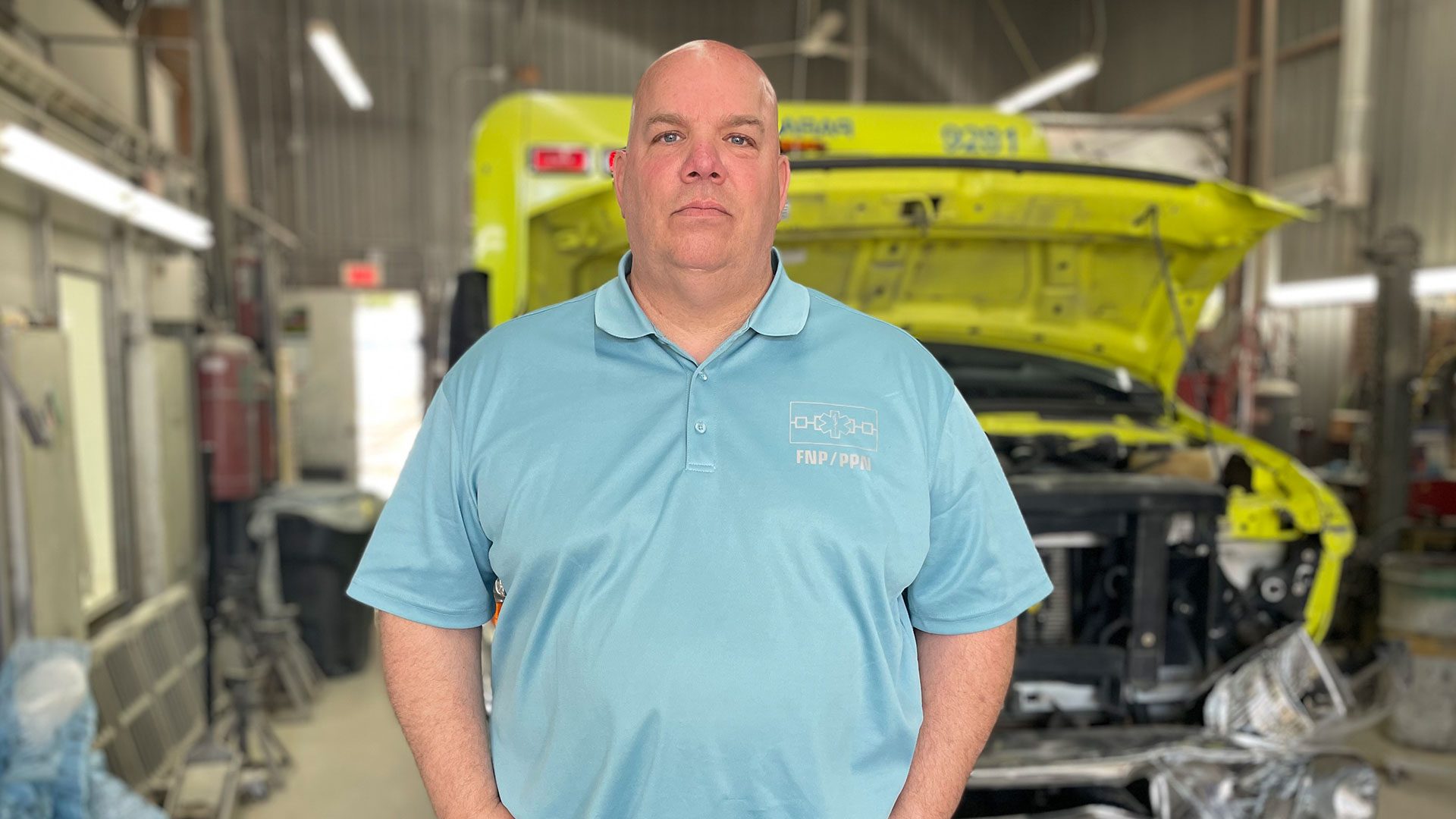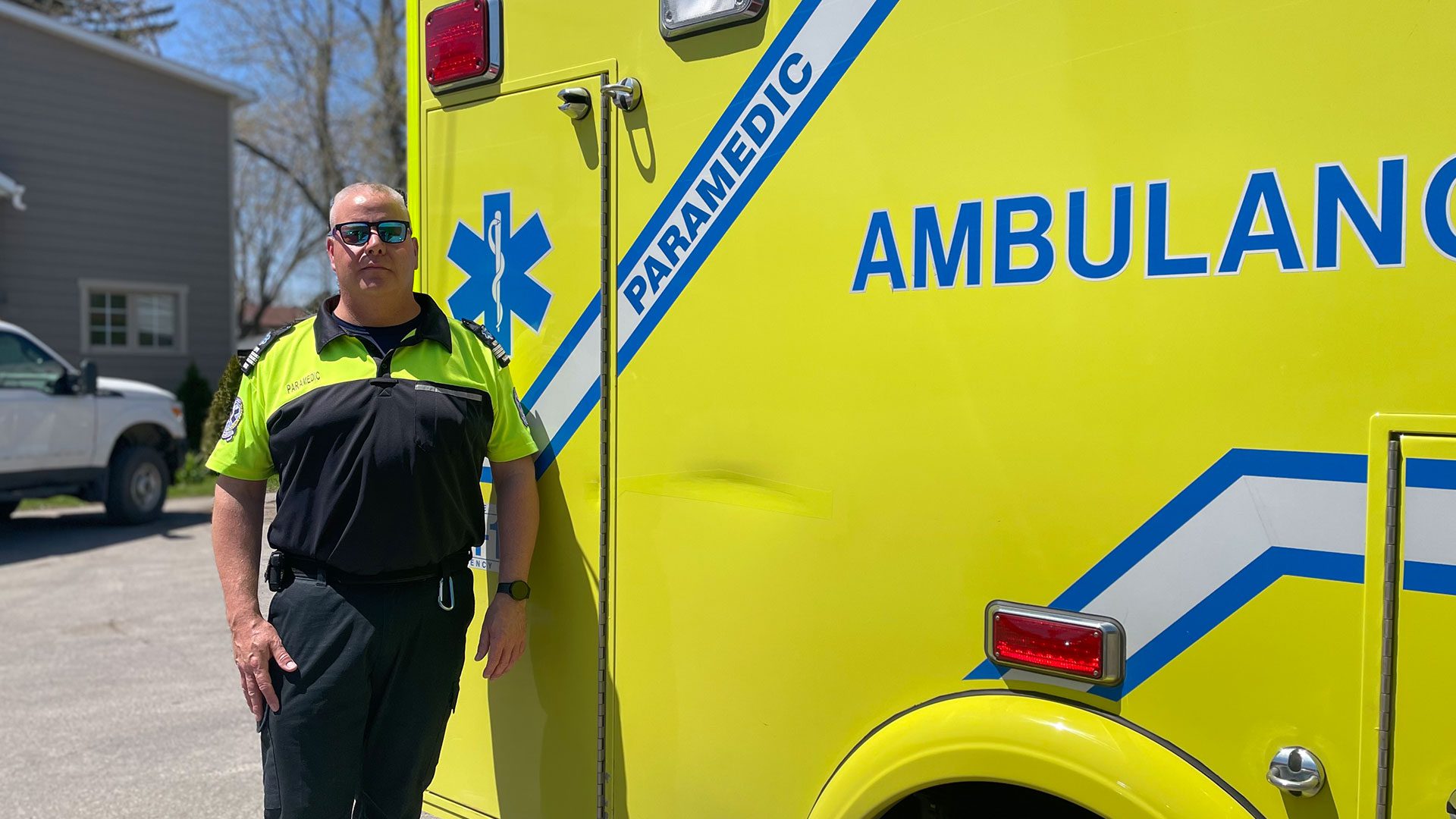What happens when your town’s only ambulance gets into a car accident? Kanehsatà:ke found out the hard way.
A car ran a stop sign on April 30 and collided with the only ambulance used by the First Nations Paramedics (FNP). There were no injuries, but the crash put FNP out of service for a couple of days.
FNP is the only Indigenous-owned ambulance service in Quebec, and primarily serves the Mohawk community of Kanehsatà:ke, about 60 kms west of Montreal. They do not have a backup ambulance, so they have to rely on neighbouring ambulance companies to loan them one.
“There’s a solidarity between these services because they understand, individually, what we have to do to maintain services in our communities,” said Rob Bonspiel, president of FNP.

Borrowing other ambulances is a solution that works in the short term, but even then, can pose some issues.
FNP secured an ambulance from a company called Paraxion on May 2, but when the company needed their vehicle back at the last minute a week later, FNP paramedic Steve Simon had to scramble to return it and access a new one.
“When we were done with our patient, we had to go with the ambulance to Grenville to pick up this ambulance from CAMBI, transfer our stuff, and then go to, it’s near Mont Tremblant, give them back their ambulance and then come all the way back,” said Simon.
FNP was out of service for over five hours.
During the periods of interrupted service, since the collision, FNP was unable to respond to a few emergency calls that were taken
Severe collisions like this one are pretty rare, but routine vehicle maintenance — like tire rotations and oil changes — is not.
“We have no choice but to go out of service when we have mechanical issues,” said FNP paramedic Steve Simon.
When this happens, response times from other ambulance services can take upward of 25 minutes.
Quebec’s ministry of health said they had denied a request from FNP to fund a new ambulance, because they normally don’t fund the purchase of new vehicles, and FNP hadn’t officially requested a backup vehicle permit.
But Bonspiel said he has placed five requests for a backup vehicle permit with Quebec’s ministry of health over the past decade, and only requested funding for a new ambulance once, on some faulty advice from a government employee.
“We’re not asking for the funding [for a second ambulance], we understand that that would come under our obligations for the operations and maintenance for the vehicle, but we need a contract, said Bonspiel.
“It’s not just a question of buy another ambulance, put her on the road, and use it, we’re not allowed. That’s not the way it works.”
Their current ambulance is nearing the end of its lifespan as a primary ambulance and would be retired as the backup once they receive a permit and purchase a new vehicle.
“We started to call her Bessy because she’s starting to get a little bit older, and it’s more of an in-house joke than anything else, she’s served the community very well,” said Bonspiel.
And “Bessy” has served more than just the 2,200 residents of Kanehsatà:ke. FNP also responds to calls in the neighbouring communities of Ste-Placide, St-Benoit and Oka.
“If the provincial dispatching system needs an ambulance in for instance in Two Mountains or St Eustache, and we’re the closest resource, we will respond,” said Bonspiel.

Quebec’s health ministry said FNP’s latest request for a permit, submitted earlier this week is pending approval.
“The minister of health and the minister of Indian affairs have come and basically said they understand our concerns and we’ve been told that things are going to change, however, they haven’t given us a deadline and haven’t told us what that change will be,” said Bonspiel.
The permit is just one of the many improvements FNP is waiting for the government to greenlight.
Bonspiel said FNP also hopes to pay their paramedics to sit in their vehicles hourly, instead of being on call from their homes, to cut down on their response times.
They’re also hoping to expand their paramedic’s services to non-emergency house calls for preventative care.
“We want to be able to offer that community paramedicine, that’s something that we proposed to the government a couple years back, saying if we’re not cost-effective now, we can be by giving more value for the involvement. That’s always been ignored and/or refused,” said Bonspiel.
The ministry of health has not approved these changes to their contract based on the government’s cost-benefit analysis.
“I have difficulty quantifying the value of a human life, regardless as to where they live,” said Bonspiel.
Update: On May 14, the Quebec government announced it would provide financial support via the Secrétariat aux affaires autochtones to help purchase a backup emergency vehicle for First Nations Paramedics (FNP). FNP is still waiting on a backup vehicle permit from Quebec’s Ministry of Health.










